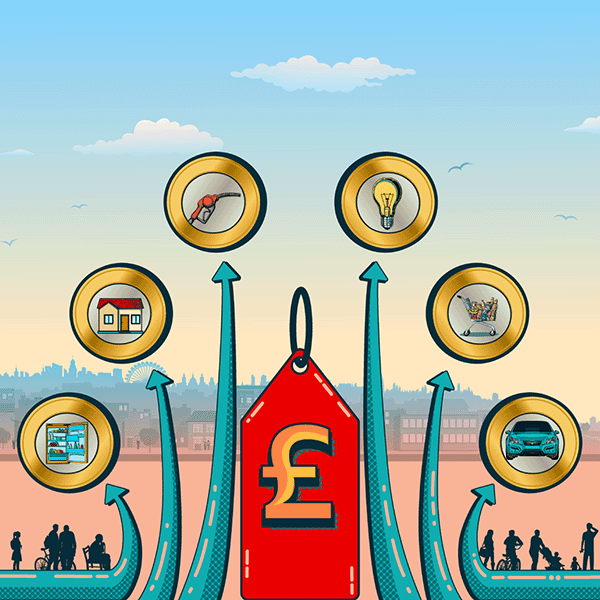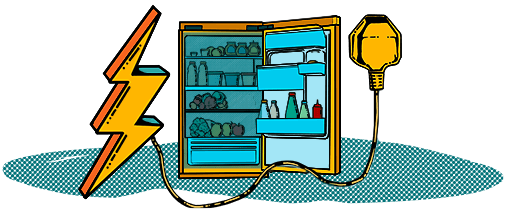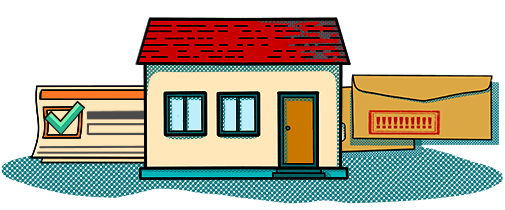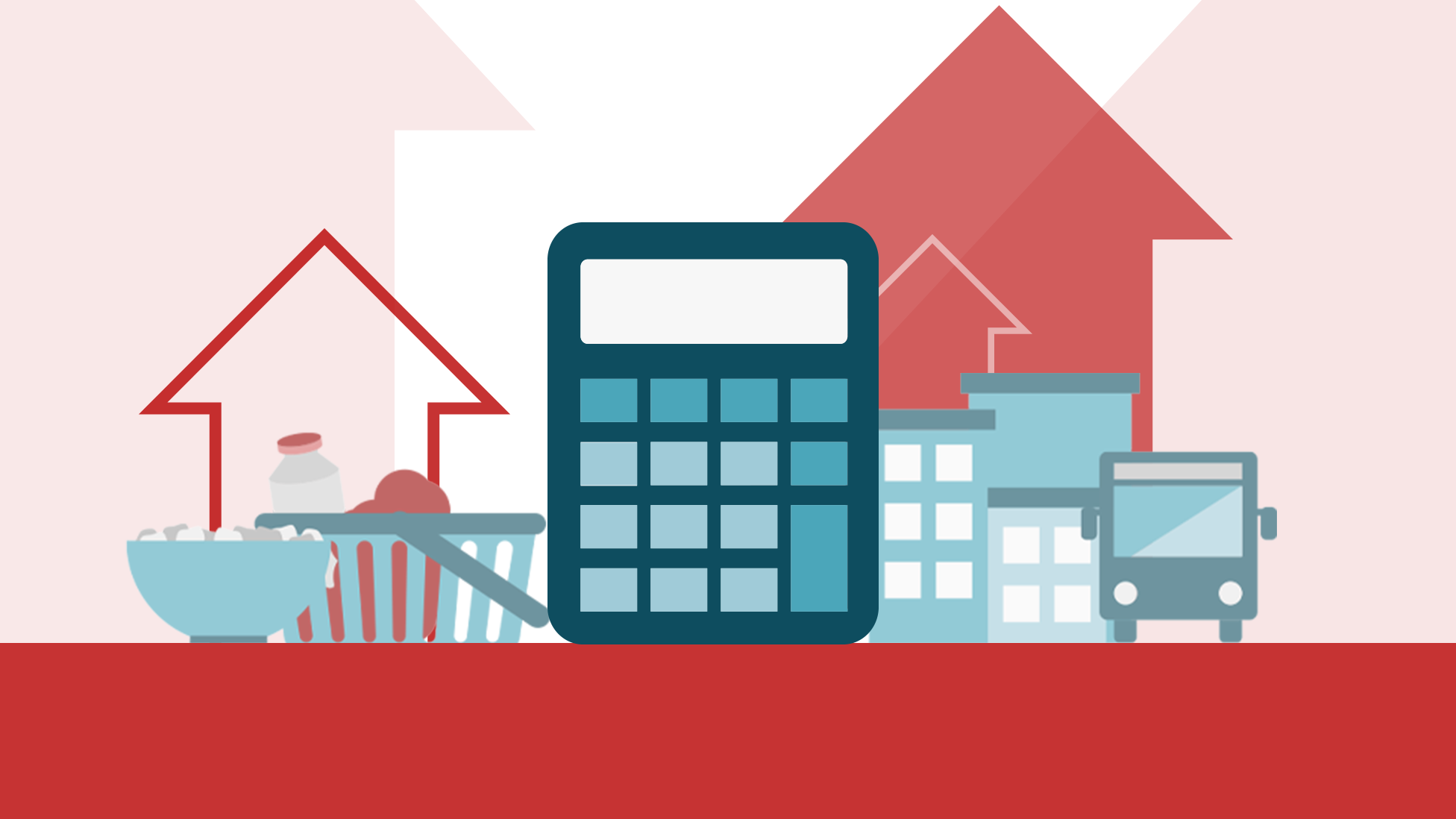
Cost of living tips: Your personalised guide to saving money
The UK is being hit by rising costs. Food, energy, transport and housing are all going up rapidly in price. But everyone’s cost of living crisis is affecting them in different ways.
As you answer some optional questions below, we will personalise this article to you and explain why you're being affected, what help is available and offer tips on how to save money.
Thanks, the article and tips have been tailored to your response.
Food

It will come as little surprise to you food prices are rising fast. According to research by Which? items including cereals and cheese cost a fifth (20%) more than they did last year. A trip to the supermarket now takes a lot of strategising beforehand, with the charity Love Food Hate Waste recommending planning meals ahead of time and setting a budget before you get to the shops.
Thanks, the article and tips have been tailored to your response.
In fact, walking straight past the convenience store onto a larger branch can pay dividends. Which? found that customers can end up spending almost a tenth (9.5%) more each year shopping at a Sainsbury’s Local rather than a regular Sainsbury’s supermarket.
Once they get there, many shoppers are turning to frozen, canned and dried products; switching from known brands to cheaper own-brand products; and cutting back on non-essentials such as alcohol and more indulgent foods.
The bad news is that it looks likely food will continue to become more expensive in the short term, with the war in Ukraine and rising energy costs pushing up prices. Industry experts expect costs to increase into next year, with the situation getting worse before it gets better.
Global food prices did fall, though, with the opening of Ukrainian ports and increased production - a glimmer of hope that the upward pressure on prices may ease in the longer term.
food
tips
Don't bin CRUSTS and POTATO SKINS
- Not wasting food could save you around £210 a year, says Helen White from Love Food Hate Waste
- Freeze produce, eat everything edible and don’t cook more than you need
Don't bin CRUSTS and POTATO SKINS
- Not wasting food could save a family around £730 a year, says Helen White from Love Food Hate Waste
- Freeze produce, eat everything edible and don’t cook more than you need
If past its Use By date, don’t eat it
- If it’s past its Best Before, use common sense and check for mould, smell, etc
- You can freeze food right up to and including the Use By date
Set your FRIDGE to less than 5C (41F)
- Adjusting the temperature could help to keep your food fresh for three days longer
- All fruit and veg except bananas, onions and pineapples do better in the fridge rather than a bowl
The Trussell Trust can help find your nearest food bank
- Usually you will need a referral from someone like a social worker, GP or local council
- Your local food bank should be able to help you meet with them
The Trussell Trust can help find your nearest food bank
- Usually you will need a referral from someone like a social worker, GP or local council: your food bank should be able to help arrange this
- You can find out if your child qualifies for free school meals on the government’s website
Thanks, the article and tips have been tailored to your response.
Energy

What you pay for your gas and electricity has also been rising fast.
Global events including the pandemic and war in Ukraine have pushed up wholesale prices - what companies pay - and those greater costs have been passed onto you, the consumer.
Nevertheless, closer to home, there are simple steps you can take to save cash: washing clothes at 30 C, cutting your shower down to four minutes or less, and stopping draughts under your door with an excluder can all help, according to the Energy Savings Trust.
Yet despite their best efforts, people are finding it increasingly tricky to afford these bills. Over summer, almost a quarter of households already owed £206 to energy firms on average, according to a survey of 2,000 households.
The government has stepped in to limit the energy price cap - the top amount suppliers can charge customers for average use. Rather than increasing to £3,549, it will now rise to £2,500 a year for a typical household in the UK. However, if you use more than the average it will cost you more.
All households are being given a £400 discount. The money will be paid in six instalments, with a discount of £66 applied to energy bills in October and November, and £67 a month from December to March 2023. Direct debit and credit customers will have the money added to their account. Beware of scam text messages claiming to be from the government, asking you to apply: the money will be added automatically.
Thanks, the article and tips have been tailored to your response.
About 80% of households - those in council tax bands A-D - are already receiving a £150 energy rebate, often through their council tax bill. How it is paid depends whether you pay your council tax by direct debit and where you live in the UK. If you’re not sure you have received it, contact your council.
Experts say it’s probably not worth switching energy providers at the moment, as hardly any are offering cheaper fixed rates. However, taking regular meter readings, paying by direct debit and questioning any unexpected increases is a good way to keep on top of your bills, according to Which?
energy
tips
The ENERGY PRICE CAP is not what you ACTUALLY PAY
- It limits what companies charge for connection and each unit of energy, but the figure itself is an estimate of a typical household
- You only pay for what you use. People who use less pay less
Use the right pan size with a lid
- Stopping flames coming round the side could save £72 per household per year, says energy company Utilita
- 40% of households are “oven default”, but using alternative appliances like air friers or microwaves could save £287
Consider HEAT PUMPS and SOLAR PANELS
- Spiralling costs of getting energy from the grid means they’ll pay for themselves faster than before
- “The payback time is three or four times shorter," says Archie Lasseter from Utilita. “I would say now is the time to get them”
Check your Energy Company Obligations (ECO)
- Larger suppliers must help low-income or fuel-poor households with things like insulation and heating
- Check eligibility on Simple Energy Advice in England and Wales, or Home Energy Scotland
NOT PAYING bills can damage your credit rating
- Comparison site Uswitch advises people falling into debt to speak to their provider to work out a more affordable payment plan
- If you don’t, they might push to install a prepayment meter or even, in rare cases, disconnect you
Thanks, the article and tips have been tailored to your response.
Transport

Rising travel costs are also affecting us all, whether we drive or take public transport. The price of crude oil, used to make petrol and diesel, has gone up due to returning demand after Covid, and Russian supply issues. Also the British pound has weakened against the dollar, and oil is bought in dollars. Almost half of adults asked in a survey said they were cutting back on non-essential journeys in their vehicle because of fuel costs.
No matter how you get there, travelling has become a balancing act between time, convenience and cost. Simon Williams from the RAC recommends drivers shop around forecourts before filling up. There are a number of free apps and websites such as Petrol Prices that compare costs in your area. Meanwhile those on public transport should investigate alternate ticket types and routes. For electric car owners, when and where you plug in can make all the difference.
Although fuel prices have eased from the record levels in early summer they remain significantly higher than a year ago. They are expected to rise again, too, after some of the world's top oil-producing countries agreed to cut the amount they export to stabilise prices.
Rail fares are set to increase again in January, but ministers say they will keep the rise below the rate of inflation (the rate prices are rising) and not bring in the changes until March. However passengers could still face paying hundreds of pounds more for their train tickets next year.
Bus companies have also warned that prices are likely to rise into next year as a result of the high price of fuel.
transport
tips
56mph (90km/h) is not necessarily most efficient
- This myth came out of old tests comparing city driving at 56mph and 75mph
- Simon Williams from the RAC suggests monitoring your car’s mileage as you go
AIR-CON burns fuel, but open windows cause ‘DRAG’
- “My policy is open the windows to cool down the inside quickly, then put them up and get the air-con going” says Williams
- “That way it works less hard initially to cool the cabin down”
AIR-CON burns fuel, but open windows cause ‘DRAG’
- “My policy is open the windows to cool down the inside quickly, then put them up and get the air-con going” says Williams
- Preconditioning will cool your car while plugged into the mains
COASTING doesn’t save fuel and is UNSAFE
- Driving in neutral or with the clutch pedal down is unlikely to save petrol, according to the AA
- Plus it means you’re not in charge of the vehicle
An EV ENERGY TARIFF can save money
- They are designed to charge your car when energy is cheap, usually overnight
- “That’s good if you charge every night, but they up your kilowatt/hour price outside of those times,” says the RAC's Simon Williams
Employers might offer RAIL SEASON TICKET loans
- If not, consider alternate modes of transport over long distances
- “People we talk to who take the coach regularly tend to love it,” says David Sidebottom, director at Transport Focus
Look beyond weekly bus tickets
- Some “carnet” deals can be hidden on bus companies’ websites
- These are like the old-fashioned books of tickets, giving a certain number of rides
It’s a matter of CASH VS TIME
- Book early, be flexible, go slower and know your rights: apply for a refund if delayed or cancelled
- "Before, some people might not have thought it was worth it, but now it probably is," says David
Thanks, the article and tips have been tailored to your response.
Housing

Both homeowners with a mortgage and renters are seeing their housing costs increase, and the crisis could result in increased homelessness and reposessions, experts have warned.
The Bank of England has raised interest rates - one of the ways used to try to slow down how quickly prices are climbing - and they're likely to rise further. The increase has made mortgages more expensive for many, and pushed private rents to record highs.
Just under a third of households have a mortgage, according to the English Housing Survey, and are therefore directly affected by changes in interest rates.
Those on a variable rate will see their monthly repayments rise immediately. People on fixed-rate deals will be impacted when their current deal ends. Due to the current climate, mortgage lenders have withdrawn a number of deals. However, most lenders will honour mortgage offers made before the rates changed, says financial adviser Rebecca Robertson.
Meanwhile, many renters are now being forced to make the choice between putting food on the table and paying rent. Know your rights and check what you’re eligible for in terms of benefits and housing payments – choose an option above for more advice.
Most importantly, if you’re in trouble, talk immediately to your landlord or mortgage lender – staying quiet will only make things worse.
And remember, if you are struggling, you can find more help and tips below.
housing
tips
Consider FIXING your mortgage
- If on a fixed-rate mortgage, Rebecca Robertson from Evolution Financial Planning suggests shopping around to make an informed decision
- “Your lender will write to you two or three months before the end of your current deal”
CHECK how much you will PAY
- If on a variable-rate mortgage, your provider should have an online tool showing what you owe at different interest rates
- If your situation may change in the next 18 months, then a fixed rate could be something to look in to, says Rebecca
Make your finances LOOK GOOD
- Mortgage checks have become much more stringent, and will look at your fixed costs when you reapply
- “Lenders aren’t checking how much you spend on takeaways” says Rebecca, “but pay day loans are a big no-no”
Check SHARED HOUSE status
- If you share with more than five non-family members, your landlord must have a special license. Contact your council to check
- If they don’t, you could be due a “rent repayment order”, says Tessa Shepperson from The Renters Guide
Get the RIGHT HELP
- If your rent is paid via benefits or Universal Credit, make sure you’re getting paid the correct amount, advises Tessa
- You can use the free calculator to check what you are entitled to
STRUGGLING to pay rent?
- A number of organisations will pay grants to help with rent arrears, Tessa explains
- Websites turn2us.org.uk and lightningreach.org or a debt advisor can point you in the right direction
If STRUGGLING speak to your landlord
- They might be able to offer help
- Most local authorities and housing associations will have support services or referrals that can help too, says solicitor Harriet Thomas, director of The Renters Guide
Don’t pay for EXTRA ROOMS
- This could be affecting the housing benefit or Universal Credit you get
- You may be entitled to a Discretionary Housing Payment and may be given priority when searching for new accommodation, says Harriet
TALK before your home is REPOSSESSED
- If you receive a notice saying your landlord will be applying to the county court for possession, do not ignore it!
- Landlords would rather find a resolution, says Harriet, so speak to them immediately

























 How will I get the cost-of-living payments
How will I get the cost-of-living payments
 How much are prices rising for you?
How much are prices rising for you?
 What can I do if I can't pay my energy bill?
What can I do if I can't pay my energy bill?